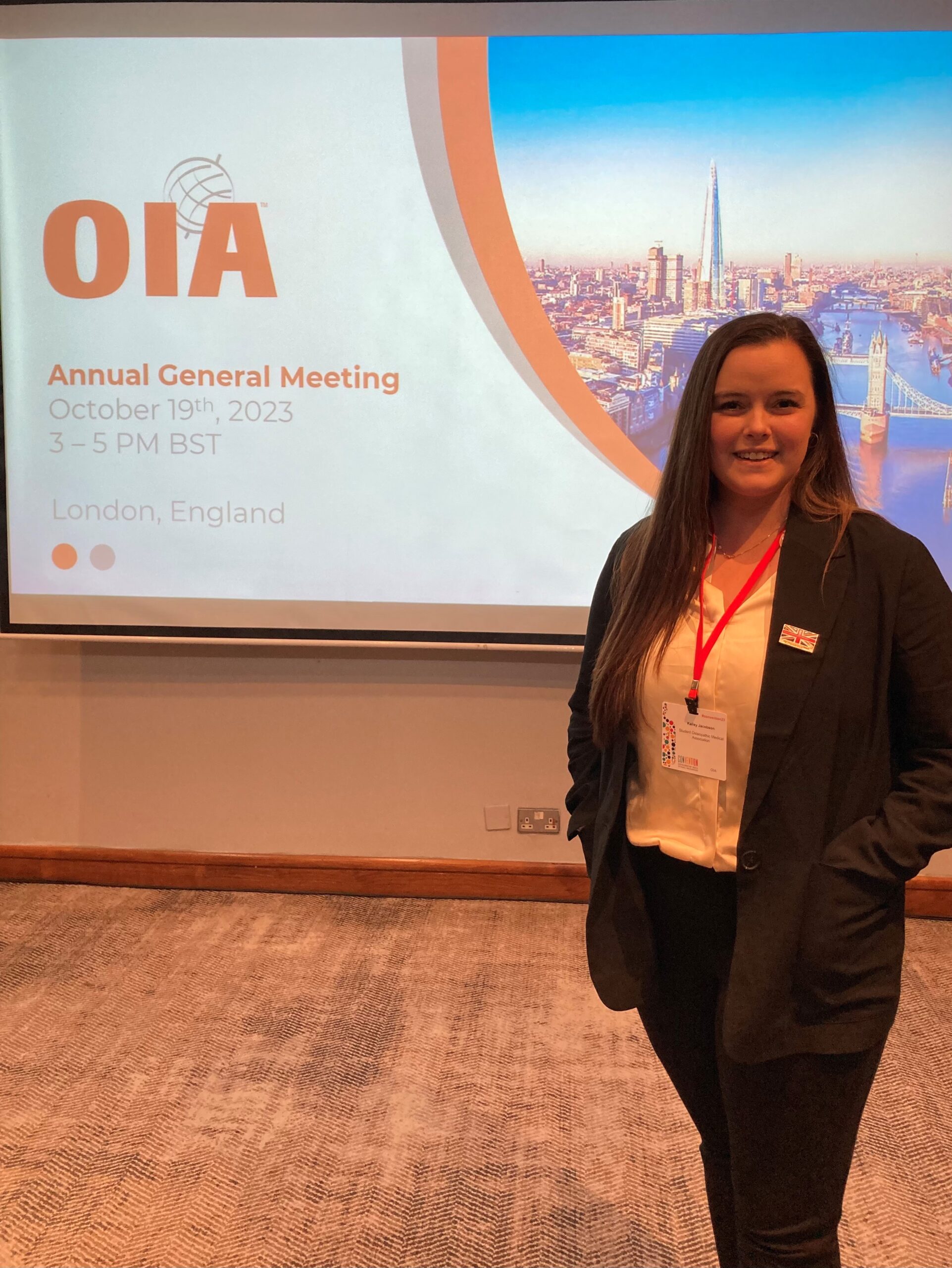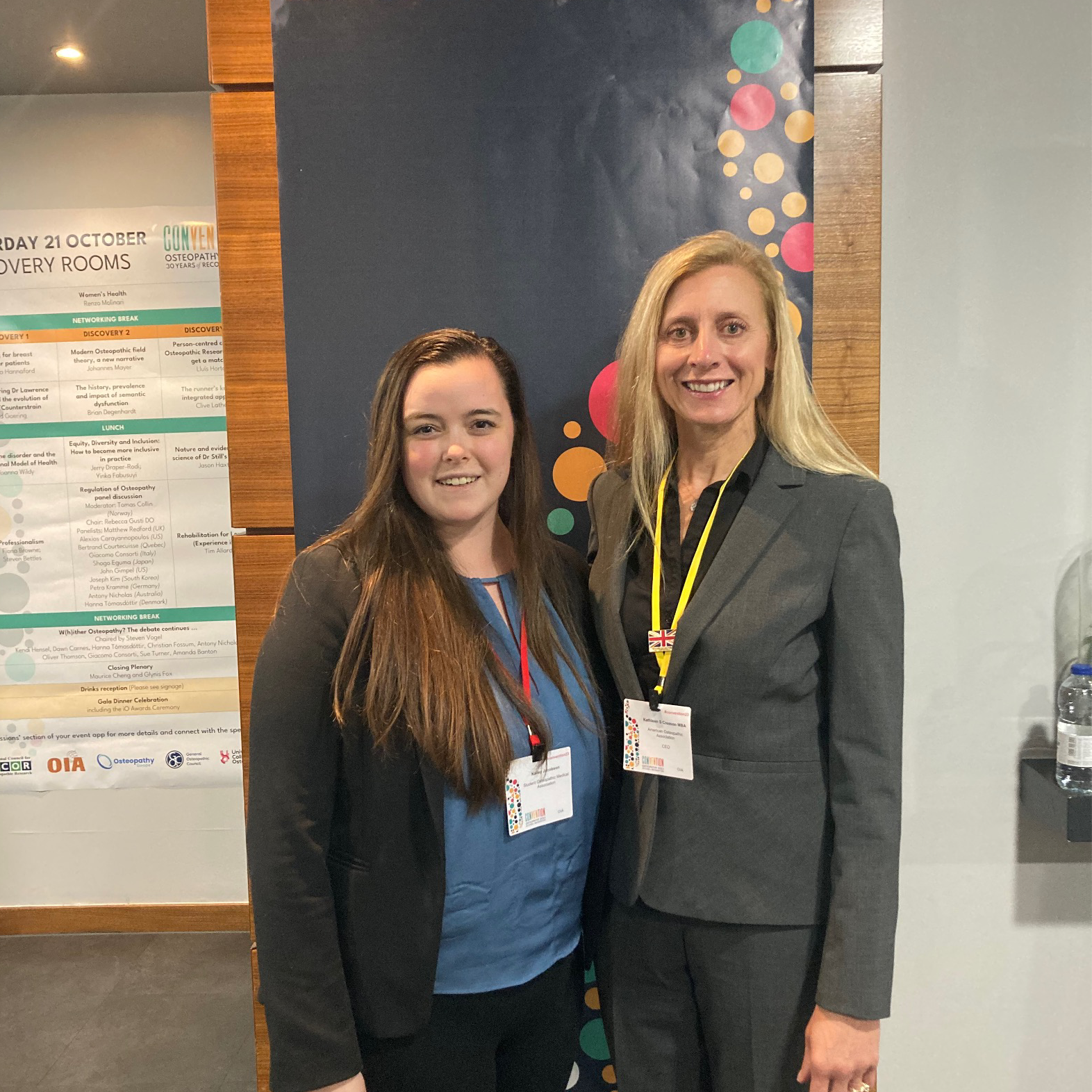As a member of the Student Osteopathic Medical Association (SOMA) and the AOA, I have heard many DOs talk about how our osteopathic community is like a family. This feeling of community has never been more apparent to me than in October at the Osteopathic International Alliance (OIA) conference in London.
As a member of the SOMA Board of Trustees, I had the honor of representing SOMA and U.S. osteopathic medical students alongside students of (non-medical) osteopathy from around the globe. Throughout the conference, it became clear to me that while we differ in our training and scope, at the core of everyone’s studies is excellent patient care focused on the whole person.
Student challenges: We are more alike than we think
One of the best moments of the conference was an informal meeting between all of the student attendees and osteopathic leaders led by OIA board members Rebecca Giusti, DO, and Jan Willcox, DO. We had the opportunity to talk about our paths to health care, the struggles each country faces, how we can help the profession move forward and the similarities and differences between U.S.-trained osteopathic physicians and internationally-trained non-physician osteopaths.

While osteopaths’ and osteopathic physicians’ training is based on the guiding philosophies of A.T. Still, DO, MD, and the tenets of osteopathic medicine, osteopathic physicians in the United States are very different from international osteopaths. In the U.S., we study osteopathic manipulative medicine (OMM) and treatment (OMT) while completing our doctorate in osteopathic medicine to become osteopathic physicians. Thus, DOs can prescribe medicine and receive additional training to perform surgery and practice in all medical specialties. In other countries, such as England, France and many others, students receive a degree in osteopathic manipulation only, and their scope of practice does not include prescribing medicine or performing surgery.
Related
One of the biggest concerns that students shared was how to continue the growth of the osteopathic profession. In the meeting we talked about how we can get more undergraduate students interested in osteopathic manipulation and ideas for engagement, such as the formation of school organizations much like SOMA, as well as an undergraduate version like we have with Pre-SOMA. Having contact with students earlier on in their careers gives them the chance to learn more about the profession and decide if it is the path they want to take.
Regulation and recognition
Another big topic discussed during the conference was regulation and recognition of the osteopathic profession. In the U.S., we tend to take for granted the fact that we are an established profession with a rich history that does not have the same challenges related to regulation as osteopaths in some other countries face. I enjoyed discussing these challenges and ways forward with people from countries trying to gain regulation for osteopaths, like Germany and Switzerland. These countries have practicing osteopaths, but since osteopathy is not regulated there, the training for osteopaths there is not standardized.
Speaker Joseph Kim, an osteopath who trained in the United Kingdom and now practices in South Korea, was particularly inspiring when discussing his path to bringing osteopathy to South Korea. As the first osteopath in South Korea, he started the first and only school of osteopathy in South Korea, the Korean Osteopathic Institute. The school had 10 graduating osteopaths this past year. Looking ahead, Dr. Kim would like to facilitate the opening of a college of osteopathic medicine in South Korea where students can train to become osteopathic physicians.
Moving forward
If I learned one thing from this conference, it is that the future of osteopathy is strong—those leading the charge for regulation and recognition are some of the most caring and passionate individuals championing better patient care for the future. My hope is to see every country full of osteopathic physicians and osteopaths united for a stronger profession.
Student involvement at the OIA conference was incredible to witness and be a part of. Through discussions and events, we have made connections to continue pushing the osteopathic profession forward. I am incredibly proud to be an osteopathic medical student. I know that in the future, we will see osteopathic care become more ingrained in the health care system and it will able to benefit even more patients.

Related reading:
How to do an international rotation
Osteopathic physicians and international osteopaths find common ground in Finland

